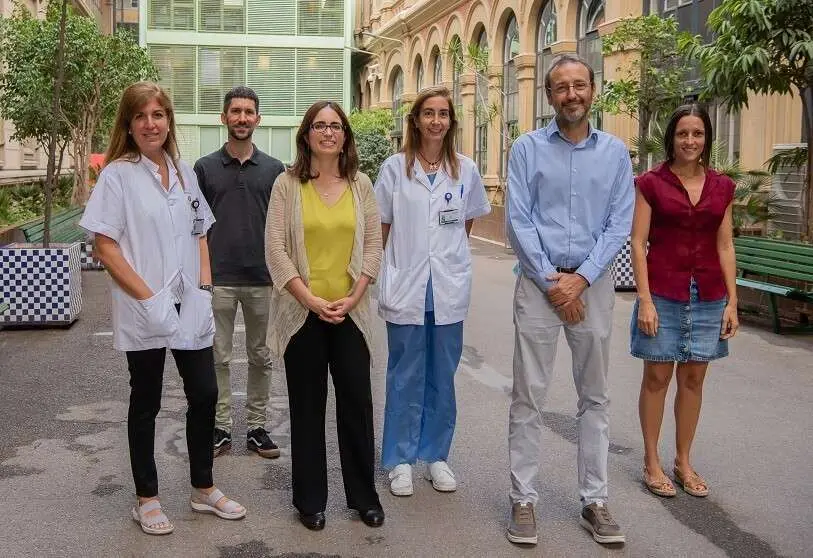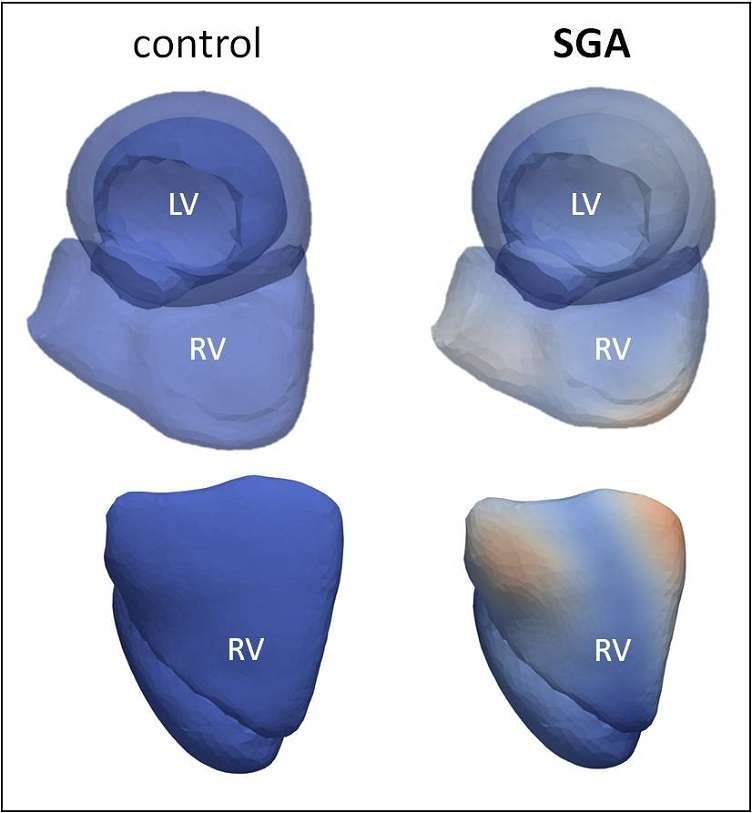Being born underweight causes changes in the heart that persist into adulthood and limit exercise

The study was led by Fàtima Crispi and Eduard Gratacós, from the BCNatal Maternal and Fetal Medicine Service (Hospital Clínic and Hospital Sant Joan de Déu) and the Fetal and Perinatal Medicine group at IDIBAPS.
Other participants included professionals from the Institut Clínic Cardiovascular, the Institut Clínic Respiratori, the IDIBAPS research groups Cardiac Imaging and Translational Computing in Cardiology, and researchers from the Universitat de Barcelona, Universitat Pompeu Fabra, the Barcelona Supercomputing Center and Philips Research France. The project has been supported by the "la Caixa" Foundation, the Carlos III Health Institute, the European Commission, CEREBRA, CIBERER and AGAUR.
People who are born with low birth weight (in the first decile, i.e. of all births, the 10% of babies born with the lowest birth weight) have more cardiovascular problems as adults. For example, they are up to three times more likely to have a heart attack. They are also at higher risk of hypertension, stroke, diabetes and metabolic syndrome.
Until now, the cause was unknown and was thought to be higher rates of diabetes and obesity.
The research team led by Dr. Gratacós, director of BCNatal, head of the IDIBAPS Fetal and Perinatal Medicine research group and professor at the University of Barcelona, was the first to demonstrate in previous work that an important part of the problem is the heart itself. "We saw that the hearts of children born with low birth weight show differences in function and structure, and that these differences that appear in foetal life were maintained until adolescence," he says.
It remained to be seen whether the changes in heart structure and function are maintained into adulthood, and that is what has been studied in the paper published in JAMA Cardiology. "It is a pioneering study that combines highly sophisticated computerised analysis techniques to analyse the shape of the heart with magnetic resonance imaging and a stress test," explains Marta Sitges, director of the Institut Clínic Cardiovascular, head of the IDIBAPS Cardiac Imaging research group and co-author of the study.
People between the ages of 20 and 40 who were born with low birth weight and normal weight were identified. To do this, they reviewed the delivery room books of the Hospital de San Joan de Déu from 20-40 years ago. Based on the date of birth and the mother's surname, we managed to contact some of them, who were asked to participate in the study.
A total of 158 adults participated, 81 were born with low birth weight and 77 with normal weight. They underwent a cardiac MRI and a bicycle stress test.

"Cardiac resonance imaging showed that people born with low birth weight maintained changes in the structure of the heart in adulthood. Their right ventricle had a different shape," explains Fàtima Crispi, senior specialist at BCNatal and scientific coordinator of the Fetal and Perinatal Medicine research group at IDIBAPS.
It was also seen that they have a lower capacity for exercise, i.e. they are not able to generate as much force with the bicycle and get tired earlier. "This does not mean that they cannot exercise, but rather the opposite," Crispi explains. "They just may not have as much capacity as the rest of the population and may get tired earlier."
It was also observed that the changes in the heart are more marked in people who smoke, are overweight or sedentary.
For Gratacós, "this research demonstrates once again the importance of foetal medicine in the prevention of adult pathologies. If we identify foetal growth problems in pregnancy and promote healthy habits from childhood, we will avoid the consequences that foetal problems can have in adulthood," he concludes.
A recent study by the same research group has shown that being born with a low birth weight increases the risk of having severe COVID-19 threefold.







